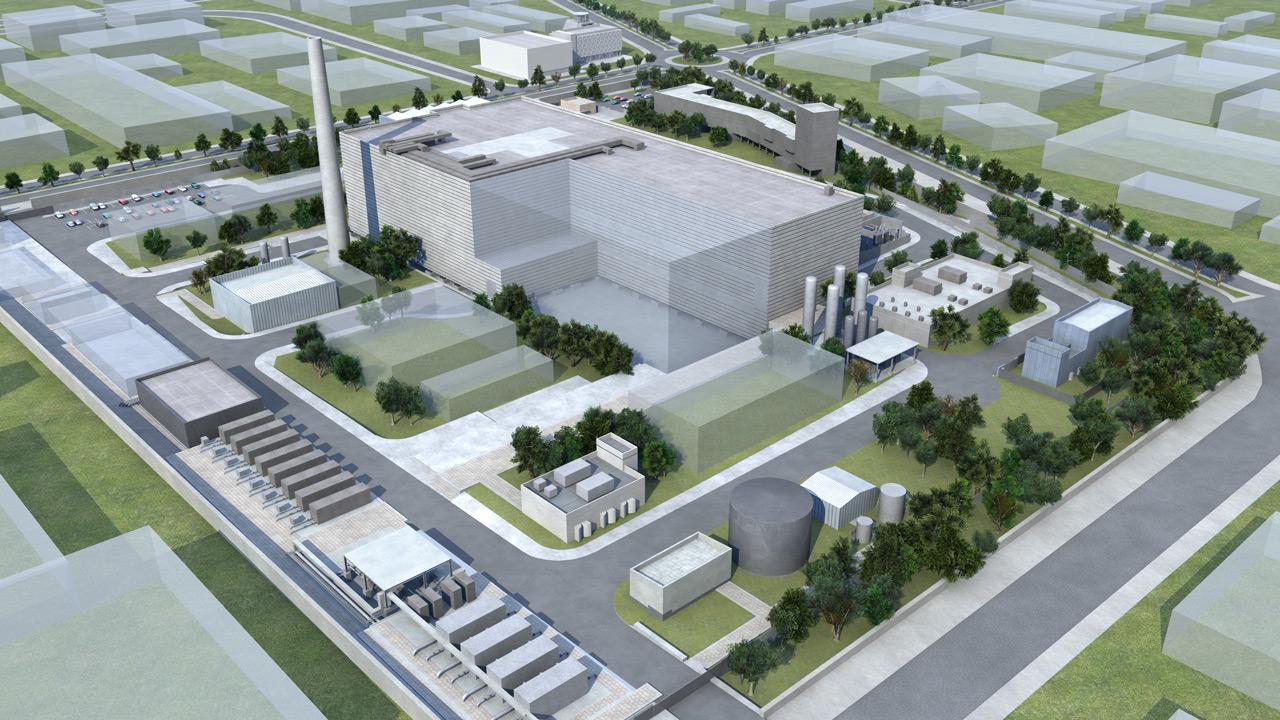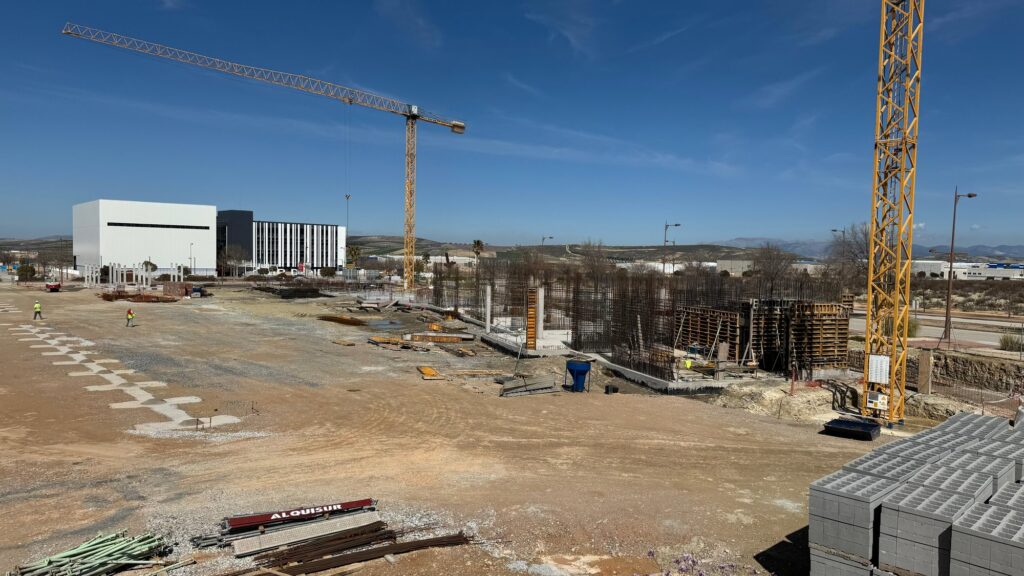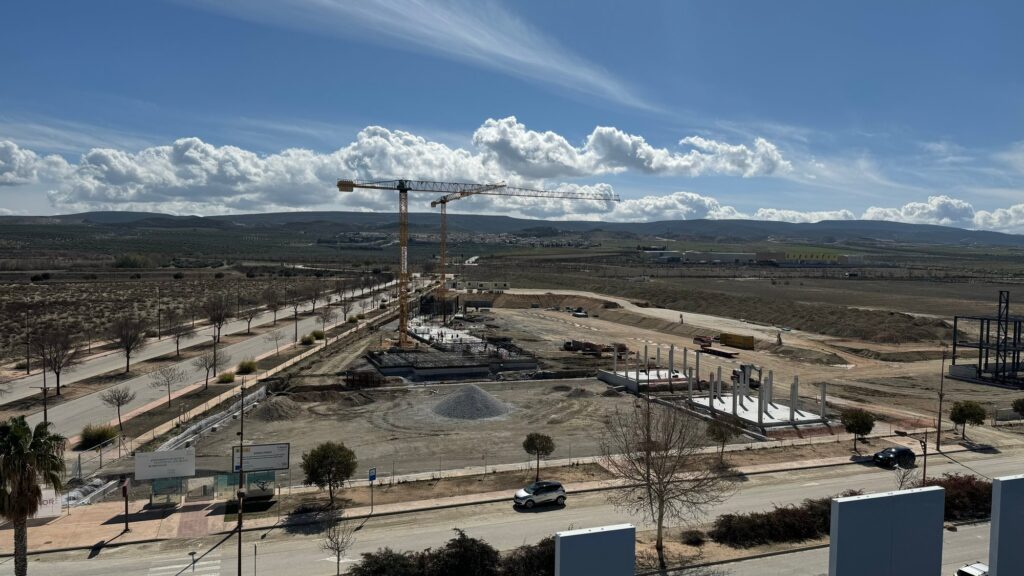DONES Programme collaboration takes shape

Model of the future IFMIF-DONES site in Escúzar, in the province of Granada, Spain. @IFMIF-DONES
A collaboration of international standing relies on the strong commitment of each party and their shared objectives to advance know-how. The International Fusion Materials Irradiation Facility – Demo Oriented Neutron Source (IFMIF-DONES), hosted in Granada, Spain, will provide the scientific community with unparalleled expertise by testing new materials and other technologies suitable for fusion devices. In this facility, a particle accelerator will help reproduce the irradiation conditions similar to those inside a reactor, which only few materials can resist. Experts will collect the results into a database of materials, a key knowledge repository for the construction of future fusion plants like DEMO.
The meetings between representatives from Spain, Croatia and Fusion for Energy (F4E) – the main parties contributing to this project for the moment, have gained pace. They are discussing how to structure the work for the IFMIF-DONES facility, which could be operational by 2034. In March 2023, at the first meeting of the Steering Committee, the construction phase officially kicked off. The civil engineering works of the Administration Building or the multi-purpose warehouse, as well as the centre for R&D on new materials, in collaboration with Granada University, have already advanced.

The negotiations for the DONES programme, which started in 2015, have now become a solid multilateral partnership. In November 2022 Spain and Croatia took the commitment to contribute up to 50% and 5%, respectively, of the costs. F4E is expected to finance up to 25%, subject to approval by its Governing Board in the coming months. More parties could chip in, with Japan, Germany and Italy expressing interest.
During the last year, a Mobilisation Working Group coordinated the technical discussions and prepared the ramp-up phase to establish when, how, and by whom the resources for the DONES will be deployed. The spirit of collaboration replicates the successful model of the Broader Approach Agreement, with a Programme Team made of all parties and each contributor seconding staff and sending hardware to Granada. In F4E’s case, the components could include the accelerator, one of the diagnostics systems, Remote Handling systems, raw materials and EUROFER steel.

To chart the way forward, the parties are also finalising the DONES baseline — the document setting the overall schedule, scope, and costs. A panel of independent experts reviewed the plan last October and confirmed its sound design. “The preparatory work is smooth and effective, building on experience in similar international projects. It is reassuring to see more countries are interested in engaging in IFMIF-DONES as a way to know more about the demonstration fusion reactors of the future,” argues Philippe Cara, Leader of the Mobilisation Working Group and recently appointed as interim Programme Manager for DONES.
The IFMIF-DONES project stems from the IFMIF/EVEDA project, one of the pillars of the Broader Approach agreement, the EU-Japan collaboration to accelerate the development of fusion. The accelerator facility in Spain will build on the prototypes tested in the IFMIF Engineering Validation and Engineering Design Activities (IFMIF/EVEDA), running from 2007 to 2025, as well as the work developed since 2015 in the framework of the EUROfusion Consortium.